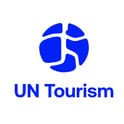UNWTO Ministerial Meetings - Shared Determination To Restart Tourism And Drive Recovery
Over the past month, the World Tourism Organization (UNWTO) was able to hold virtually meetings of its five Regional Commissions to share responses to the challenge of COVID-19 and their plans for the restart of tourism in the wake of the pandemic.
For the first time ever, the five regional bodies of Member States of the United Nations specialized agency, met virtually rather than in person. The annual series of meetings got underway with the Regional Commission for Africa, and this was followed by meetings of the Regional Commissions for the Americas, Europe, Asia and the Pacific and finally the Middle East region. In all instances, representatives of Member States, including Ministers of Tourism, were joined UNWTO Affiliate Members, including leaders from across the private sector.
UNWTO Secretary-General Zurab Pololikashvili said: "The meetings of the UNWTO Regional Commissions has shown the universal determination to restart tourism, and to do so with an emphasis on sustainability and on ensuring the benefits are shared as widely as possible. At the same time, the insights of UNWTO Member States from around the world make clear that, while some destinations are re-opening to tourists, this crisis is not yet over in many places, and that the tourism sector continues to require strong political and economic support if we are to safeguard livelihoods and protect whole economies in these challenging times."
In the final meeting of this round, the Regional Commission for the Middle East featured nine Ministers of Tourism, as well as representatives from the Cooperation Council for the Arab States of the Gulf, the Arab Tourism Organization, the League of Arab States, the Organization of Islamic Cooperation and the Islamic Development Board.
Chaired by the Kingdom of Saudi Arabia, the virtual meeting focused on ensuring all destinations are ready to welcome tourists back, with enhanced hygiene protocols in place so as to make tourists feel safe and confident. Discussions also centred on the important role innovation and digital transformation will play in the future of tourism across the Middle East region.
In all cases, UNWTO's leadership used the occasion of the meetings of the Regional Commissions to share the practical and technical support made available to both governments and the private sector. The UNWTO Guidelines for Restarting Tourism provide a clear action plan for growing back stronger and better, and the Tourism Recovery Technical Assistance Package outlines the support available to all Member States, including assistance in devising new marketing strategies.
About UN Tourism
The World Tourism Organization (UN Tourism) is the United Nations agency responsible for the promotion of responsible, sustainable and universally accessible tourism.
As the leading international organization in the field of tourism, UN Tourism promotes tourism as a driver of economic growth, inclusive development and environmental sustainability and offers leadership and support to the sector in advancing knowledge and tourism policies worldwide.
Our Priorities
Mainstreaming tourism in the global agenda: Advocating the value of tourism as a driver of socio-economic growth and development, its inclusion as a priority in national and international policies and the need to create a level playing field for the sector to develop and prosper.
Promoting sustainable tourism development: Supporting sustainable tourism policies and practices: policies which make optimal use of environmental resources, respect the socio-cultural authenticity of host communities and provide socio-economic benefits for all.
Fostering knowledge, education and capacity building: Supporting countries to assess and address their needs in education and training, as well as providing networks for knowledge creation and exchange.
Improving tourism competitiveness: Improving UN Tourism Members' competitiveness through knowledge creation and exchange, human resources development and the promotion of excellence in areas such as policy planning, statistics and market trends, sustainable tourism development, marketing and promotion, product development and risk and crisis management.
Advancing tourism's contribution to poverty reduction and development: Maximizing the contribution of tourism to poverty reduction and achieving the SDGs by making tourism work as a tool for development and promoting the inclusion of tourism in the development agenda.
Building partnerships: Engaging with the private sector, regional and local tourism organizations, academia and research institutions, civil society and the UN system to build a more sustainable, responsible and competitive tourism sector.
Our Structure
Members: An intergovernmental organization, UN Tourism has 160 Member States, 6 Associate Members, 2 Observers and over 500 Affiliate Members.
Organs: The General Assembly is the supreme organ of the Organization. The Executive Council take all measures, in consultation with the Secretary-General, for the implementation of the decisions and recommendations of the General Assembly and reports to the Assembly.
Secretariat: UN Tourism headquarters are based in Madrid, Spain. The Secretariat is led by the Secretary-General and organized into departments covering issues such as sustainability, education, tourism trends and marketing, sustainable development, statistics and the Tourism Satellite Account (TSA), destination management, ethics and risk and crisis management. The Technical Cooperation and Silk Road Department carries out development projects in over 100 countries worldwide, while the Regional Departments for Africa, the Americas, Asia and the Pacific, Europe and the Middle East serve as the link between UN Tourism and its 160 Member States. The Affiliate Members Department represents UN Tourism's 500 plus Affiliate members.
UN Tourism Communications Department
+34 91 567 8100
UN Tourism
